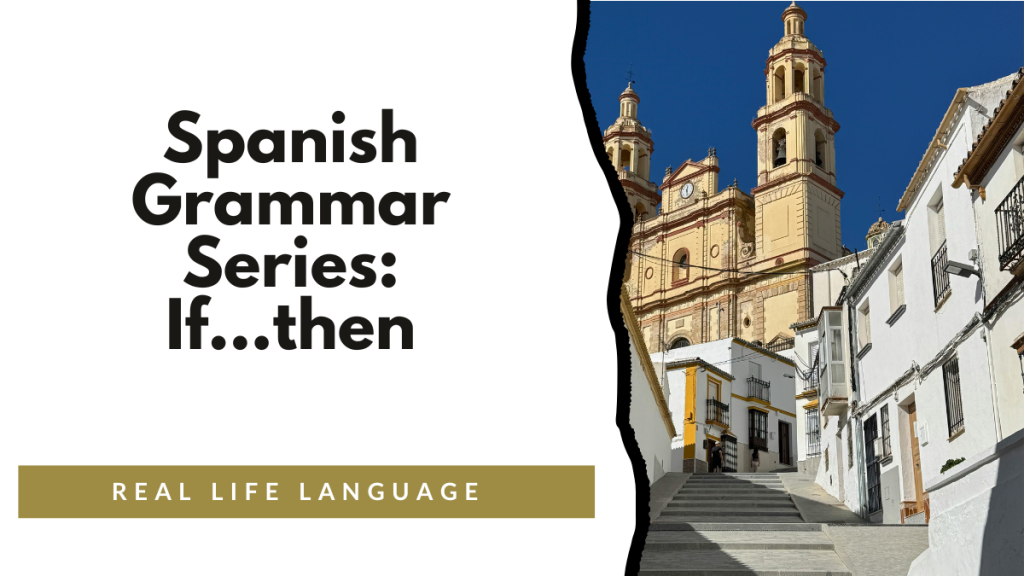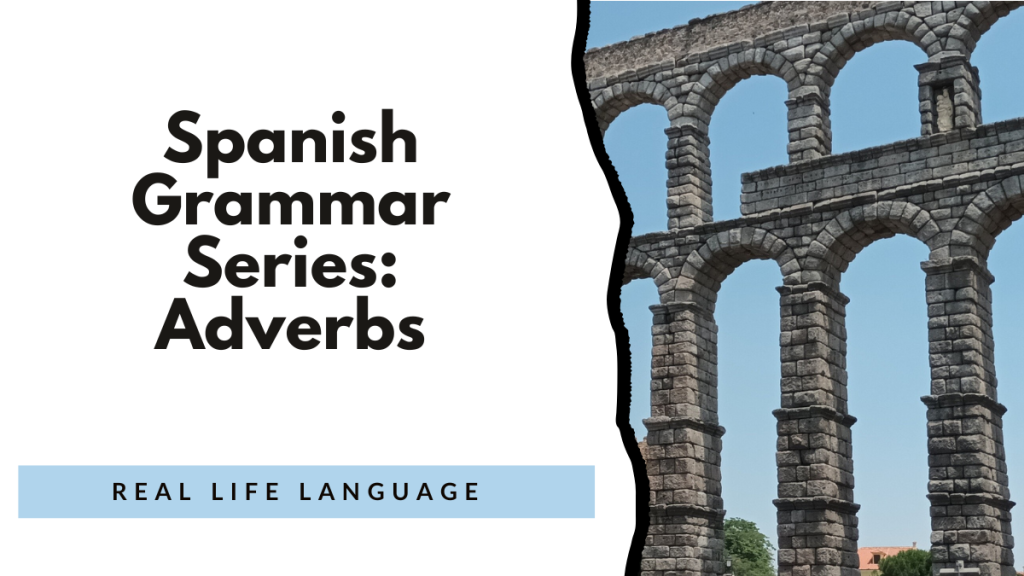Gustar and Verbs Like Gustar
(Los Verbos como “Gustar”)
The verb gustar does not literally mean “to like.” Instead, it means “to be pleasing to,” which is why sentences with gustar follow a different structure than English. Rather than saying “I like the book,” Spanish expresses the idea as “The book pleases me.”
Me gusta el libro.
Many other common Spanish verbs follow this same pattern. Understanding how gustar works makes it easier to use these similar structures accurately and naturally.
The verb gustar doesn’t literally mean “to like” — it means “to be pleasing to.”
That’s why sentences with gustar use a different structure from English.
Instead of saying “I like the book,” Spanish says “The book pleases me.”
Me gusta el libro.
1) The Logic of “Gustar”
| English | Spanish (literal translation) |
| I like the book. | Me gusta el libro. → “The book pleases me.” |
| We like the movies. | Nos gustan las películas. → “The movies please us.” |
So, the thing liked is the subject, and the person who likes is the indirect object (who receives the pleasure).
Formula:
Indirect object pronoun + gustar (conjugated) + subject
2) Indirect Object Pronouns
These pronouns show to whom something is pleasing (who likes it):
| Pronoun | Meaning | Example |
| me | to me | Me gusta el café. → I like coffee. |
| te | to you | ¿Te gusta bailar? → Do you like to dance? |
| le | to him / her / you (formal) | Le gusta el fútbol. → He/She likes soccer. |
| nos | to us | Nos gustan los perros. → We like dogs. |
| os | to you all (Spain) | ¿Os gusta la pizza? → Do you all like pizza? |
| les | to them / you all | Les gusta el arte. → They like art. |
Clarifying phrases like a mí, a ti, a él, etc., can be added for emphasis or clarity:
- A mí me gusta el café. → I (really) like coffee.
- A Juan le gusta el fútbol. → Juan likes soccer.
- A ellos les gustan los museos. → They like museums.
3) Conjugating Gustar
Gustar is conjugated according to the thing liked, not the person.
| Subject (thing liked) | Verb form | Example |
| Singular noun / verb | gusta | Me gusta el libro. / Me gusta leer. |
| Plural noun | gustan | Me gustan los libros. |
Examples:
- Me gusta la música. → I like music.
- Me gustan los deportes. → I like sports.
- Te gusta bailar. → You like to dance.
- Nos gustan las películas cómicas. → We like funny movies.
When using verbs (infinitives) after gustar, always use gusta (singular):
- Me gusta correr. → I like to run.
- Nos gusta viajar y aprender idiomas. → We like to travel and learn languages.
4) Common Expressions with Gustar
| Expression | Meaning | Example |
| Me gusta… | I like… | Me gusta el helado. |
| ¿Te gusta…? | Do you like…? | ¿Te gusta el cine? |
| No me gusta… | I don’t like… | No me gusta el café. |
| A mí también. | Me too. | Me gusta el tenis. — A mí también. |
| A mí tampoco. | Me neither. | No me gusta estudiar. — A mí tampoco. |
5) Verbs Like Gustar
Many verbs follow the same structure as gustar — they use indirect object pronouns and are conjugated based on the thing or action that affects the person.
| Verb | Meaning | Example |
| encantar | to love (something) | Me encanta el chocolate. → I love chocolate. |
| interesar | to interest | Nos interesa la historia. → History interests us. |
| importar | to matter / to be important | ¿Te importa si voy? → Does it matter to you if I go? |
| fascinar | to fascinate | A ella le fascinan los planetas. → She’s fascinated by planets. |
| aburrir | to bore | A ellos les aburre el museo. → The museum bores them. |
| molestar | to bother / annoy | Me molesta el ruido. → The noise bothers me. |
| doler (o → ue) | to hurt | Me duele la cabeza. → My head hurts. |
| faltar | to lack / be missing | Nos falta dinero. → We’re missing money. |
| quedar | to fit / to have left | Me queda bien la camisa. → The shirt fits me well. / Nos quedan dos días. → We have two days left. |
| parecer | to seem / appear | Me parece interesante. → It seems interesting to me. |
| chocar | to dislike / annoy | Me chocan los insectos. → I can’t stand insects. |
| caer bien/mal | to (not) get along with someone | Me cae bien tu amigo. → I like your friend. |
All these verbs use me, te, le, nos, os, les and usually have only two conjugations — singular (third person singular) and plural (third person plural).
6) Clarifying “A” Phrases
Because le and les can mean “to him,” “to her,” or “to them,” Spanish often adds clarification:
| Spanish | English |
| A Juan le gusta el béisbol. | Juan likes baseball. |
| A ella le gustan los gatos. | She likes cats. |
| A ustedes les gusta bailar. | You all like to dance. |
| A mis padres les encanta viajar. | My parents love to travel. |
Structure:
A + person + indirect object pronoun + verb + subject
7) Word Order and Emphasis
Word order in gustar-type sentences can vary slightly, but the meaning stays the same.
| Sentence | Translation |
| Me gusta el cine. | I like the movies. |
| El cine me gusta. | I like the movies. (emphasis on el cine) |
| A mí me gusta el cine. | I like the movies. (emphasized: me) |
A mí and a ti are often added for emphasis or contrast:
- A mí me gusta el chocolate, pero a ti no.
8) Using Gustar-Type Verbs in Other Tenses
| Tense | Example | Translation |
| Preterite | Me gustó la película. / Me gustaron las películas. | I liked the movie(s). |
| Imperfect | Me gustaba el fútbol. | I used to like soccer. |
| Future | Me gustará viajar. | I will like to travel. |
| Conditional | Me gustaría ir contigo. | I would like to go with you. |
| Present Perfect | Me ha gustado la comida. | I have liked the food. |
Me gustaría… is extremely common for polite requests or soft suggestions:
- Me gustaría un café, por favor. → I’d like a coffee, please.
- ¿Te gustaría ir al cine? → Would you like to go to the movies?
9) Practice: Fill in the Blanks
Complete each sentence with the correct form of the verb in parentheses.
- A mí me __________ (gustar) el helado.
- A ellos les __________ (encantar) los deportes.
- ¿Te __________ (interesar) la historia?
- Nos __________ (molestar) el ruido.
- A mi madre le __________ (faltar) tiempo.
- Me __________ (doler) los pies.
Answers:
- gusta
- encantan
- interesa
- molesta
- falta
- duelen
10) Practice: Translate
- I love Spanish music.
- The movie bores me.
- My head hurts.
- We like to travel.
- Does it matter to you?
- They are fascinated by animals.
Answers:
- Me encanta la música española.
- Me aburre la película.
- Me duele la cabeza.
- Nos gusta viajar.
- ¿Te importa?
- Les fascinan los animales.
11) Common Pitfalls & Fixes
| Wrong | Correct | Why |
| Yo gusto el chocolate. | Me gusta el chocolate. | Subject = what pleases, not who likes. |
| Me gustan bailar. | Me gusta bailar. | Infinitive is singular → gusta. |
| Le gustan a Juan el fútbol. | A Juan le gusta el fútbol. | Keep “a Juan” at the start for clarity. |
| Me encantan leer. | Me encanta leer. | Infinitives take singular form. |
| Nos gusta las películas. | Nos gustan las películas. | Plural subject → gustan. |
12) Quick Reference Chart
| Concept | Rule / Formula | Example |
| Structure | I.O. pronoun + verb + subject | Me gusta el chocolate. |
| Pronouns | me, te, le, nos, os, les | Nos gustan los libros. |
| Singular subject | gusta | Te gusta la clase. |
| Plural subject | gustan | Te gustan las clases. |
| Clarifiers | A + name / pronoun | A Ana le gusta leer. |
| Other verbs | encantar, interesar, molestar, doler, faltar, parecer, importar | Nos interesa el arte. |

